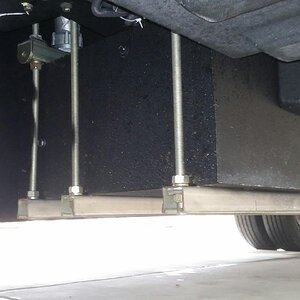Neal
Administrator
- Joined
- Jul 27, 2019
- Messages
- 13,933
- Location
- Midlothian, VA
- RV Year
- 2017
- RV Make
- Newmar
- RV Model
- Ventana 4037
- RV Length
- 40' 10"
- Chassis
- Freightliner XCR
- Engine
- Cummins 400 HP
- TOW/TOAD
- 2017 Chevy Colorado
- Fulltimer
- No
For those using the Pepwave with Firmware 8.0.1 or later you have the ability to set a TTL value to be enforced in the Cellular details (settings) area. Let's use this thread for those that experiment with it and what you find.
Since I started beta testing this I really couldn't tell if it was working or not so I just landed at 65 for a value per the video we've seen about the TTL trick to try and make carriers think we're using a cell phone which typically is favored for speeds. I'm now at Casa Grande, AZ and I decided to tinker with TTL's a little. Once again Sprint is showing some strength interestingly as it has been in a few AZ locations. Anyways, I tried 64 then 66 and I did notice a difference in my tests. 66 seems to taste good to Sprint and I'm going to leave this. I did see a noticable difference in upload speeds doubling from 64 tests to 66 tests. Downloads are pretty good at over 20. Sprint has a pattern of very slow upload speeds which I think has some importance I'm finding out for WiFi calling. AT&T is now at 66 as well and I "think" it's showing positive results with 66 over 64 but I don't know if much difference over 65. So for now I'm going to run at 66 TTL and see how it goes.
Since I started beta testing this I really couldn't tell if it was working or not so I just landed at 65 for a value per the video we've seen about the TTL trick to try and make carriers think we're using a cell phone which typically is favored for speeds. I'm now at Casa Grande, AZ and I decided to tinker with TTL's a little. Once again Sprint is showing some strength interestingly as it has been in a few AZ locations. Anyways, I tried 64 then 66 and I did notice a difference in my tests. 66 seems to taste good to Sprint and I'm going to leave this. I did see a noticable difference in upload speeds doubling from 64 tests to 66 tests. Downloads are pretty good at over 20. Sprint has a pattern of very slow upload speeds which I think has some importance I'm finding out for WiFi calling. AT&T is now at 66 as well and I "think" it's showing positive results with 66 over 64 but I don't know if much difference over 65. So for now I'm going to run at 66 TTL and see how it goes.











